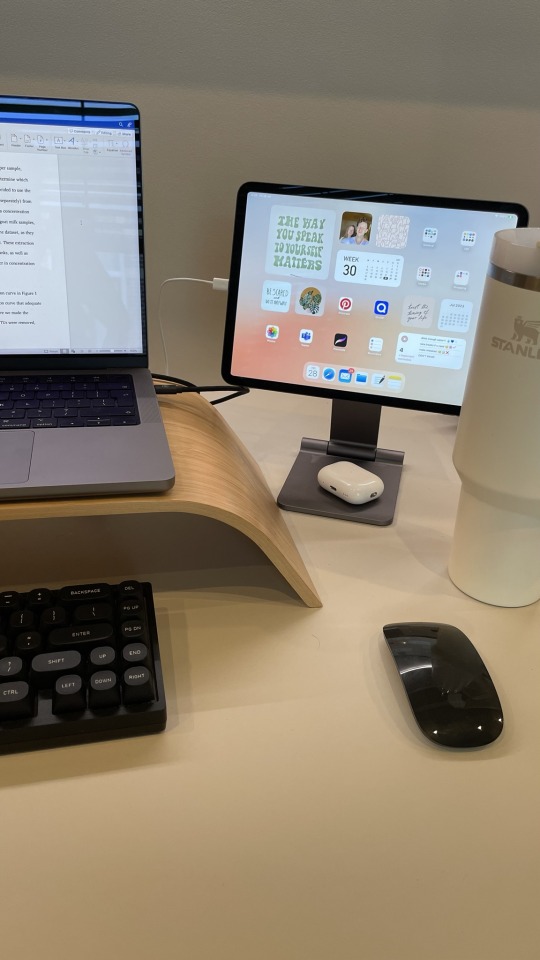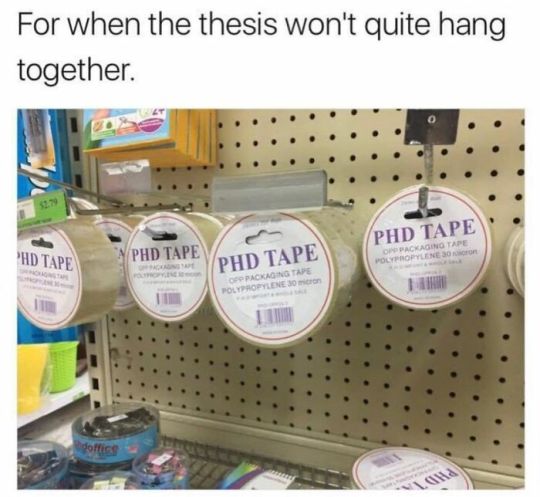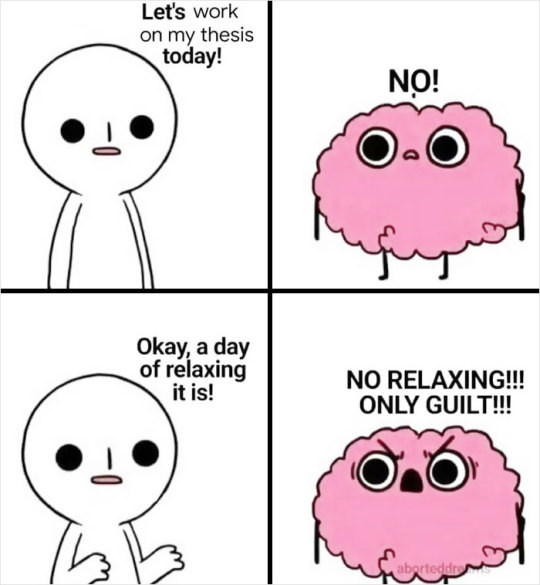#dissertation thesis writing
Explore tagged Tumblr posts
Text

Writing Your Doctoral Dissertation: Invisible Rules For Success
Dissertation thesis writing can be hard for Ph.D. students. Take help from Treat assignment help AU for writing your dissertation without stress.
#dissertation writing#dissertation thesis writing#Homework Help#Coursework Help#Thesis Writing help experts
0 notes
Text


days of october 🍂
aka coffee, daily walks and never-ending thesis work
#aquietplacetostudy#light academia#studyblr#aesthetic#study inspiration#uni student#writing#university#uni life#study blog#thesis#master thesis#dissertation#minimal study space#study space#academia#october#fall season#autumn
1K notes
·
View notes
Text
hello just came here to say i hate rhysand and cassian please die thank you for listening to my ted talk.
#anti cassian#anti rhysand#nesta archeron#pro nesta archeron#anti inner circle#anti nessian#sjm critical#omfg bye#Grade A motherfuckers#literally could write a thesis and dissertation on how much they fucking suck#anyway#someone give me fic recs#where they both die a horrible violent very unpeaceful death#if you made it here here’s a cookie 🍪
289 notes
·
View notes
Text
THESIS QUESTIONNAIRE
Hi! I'm currently undertaking a thesis about roleplay and collaborative storytelling online and I'm circulating a questionnaire as a part of my research! I invite anyone who is or has been into roleplay of any kind to fill it out, I would greatly appreciate it!
Here is the link!
(If there are any questions or issues, don't be afraid to message me!)
90 notes
·
View notes
Note
Not to harsh your joy regarding your personal project, (which does sound awesome!) the fact that you keep answering the "can I do fanfic?" questions with "technically yes, but have you considered not doing that?" does not actually *feel* very fanfic friendly. (Especially for anyone who enjoys fanfic as a hobby and isn't also an ofic writer. For example, I personally write almost exclusively character studies that are an explicit reaction to canon; there is no real way to write that sort of thing except as fanfic.)
Which is just a long-winded way of requesting that you maybe consider less of a caveat with the FAQ if you make one, please.
oh that was definitely not my intention, thanks for the ask! I think it was mostly just because I got that same question a few times in a row from various anons within the same time span (including some that were not published publicly), it just happened that I was thinking of my own project(s, plural now) in the last day when I answered those two, for those who want an extra creative challenge.
There's a reason my own original thing has been in my head for the last ten years without me actually writing it while I've written and posted tons of fanfiction, and even now some of my original works are going to be based on Arsene Lupin, so they'd technically be considered fanfiction since they're based on and use an established work for the characters and settings --
--writing completely original fic *is* harder, and that's exactly why I'm *suggesting* (not requiring!) that people consider taking 1 out of short story 4 challenges to look at their work in a new light.
90% of what I read and (until I actually start and finish my original works) 100% of what I've written in my life is fanfic. I have nothing against fanfic, otherwise I woudn't even be interested in creative writing.
But its also not a diss to say "Would you consider looking at your [fanfic] writing from a new angle and try to figure out different ways of going about it?"
Honestly, being able to even consider this option *as a fun extra challenge* is meant to help improve your writing and creative skills; it's not meant as a cheap shot at people who choose to write fanfiction because I my self write and read tons of it,
it's me saying "if you want even more practice at creative writing during these monthly challenges, try branching out a little bit from your comfort zone, you may be pleasantly surprised."
People who write and read fanfiction already have tons of creative experience, and if people like me and many other fanfic writers who one day dream of being published authors, want to broaden our horizons and seek new experiences, one of the easiest exercises is to take something we're planning on writing or already wrote, and see what we would change to make it brand new and standalone--
-- something that not only helps you come up with new ideas, but also will help when it comes time to *edit*, which can be, depending on the length and complexity of your story, can be a complicated process:
whether that means having to delete scenes entirely,
changing what a character says,
altering an aspect of the worldbuilding to fix plot holes
, re-writing your character so they're not overpowered because it was ruining the stakes and tension,
changing the POV of chapters because it was ruining the flow of the story,
etc etc etc.
I love fan fiction.
I love reading it and I love writing it, and for many people who take on monthly writing challenges, it is a way to test ourselves and gear ourselves up and prove to ourselves that not only can we write x amount of words, but it proves to ourselves that we are *capable of creating*, and for many creatives, that ultimately leads to crafting our own unique stories;
if you're already taking place in a monthly writing challenge, why not push the bounds a little bit *if you're so inclined* and test the waters? Especially when you're surrounded by a community who is cheering you on, every step of the way?
Every Nanowrimo I ever won was fanfiction. Heck, even not during November I once did 40k words in two weeks for a fic.
I always stalled out when I tried to write original works;
it is much easier to start small with a single short story than it is to try to write an entirely original novel, and my encouraging people to try baby steps by *experimenting* with one short story out of four in a month is not meant to be a diss against fanfiction,
but an *encouragement to those like me* who were so eager to write original works but floundered when I tried to jump into the deep end and felt disheartened.
Many fanfic authors aspire to write original fics, and thats who that challenge is for, for the people who want to write original works but are too afraid to fully commit; I'll still be writing and posting fanfiction even if I become a published author, even If I just have to come up with a few new pen-names to post them under.
There's absolutely no judgement on anyone who wants to write fanfiction for these challenges, my "caveat" as you say, is only there as encouragement to those like me who are afraid to take the first step, or uncertain of how to even *begin* that first step, not any kind of condemnation.
TL;DR:
I did not mean for my responses on the "can I write fanfiction" to come off as rude or looking down on fanfiction, its meant to be an encouragment to all the people like me who love fanfic and started out writing fanfiction, and dream of writing original works to take the first step, with a community of like-minded people all taking the same challenge.
Like every other challenge aspect of these events, taking a fanfic idea and turning it into an original short story is completely optional and meant as inspiration, just like following prompts for events is not mandatory, and even completing the 30k word goal is not mandatory; the goal for this month is to create, get in the habit of creating, and having fun with it!
#replies#long post#I gotta leave for work but hopefully this clarifies?#I might just be reading too much into it or vice versa?#my posts are not meant to be rude or an attack but theyre meant to be#encouragement and inspiration for those looking for it#just like having prompts and the option of doing short stories for november instead of one long complete work etc#writing a thesis statement - a dissertation - a fanfic - an original work - a technical manual-- all of these are still writing#this whole event is optional with additional optional challenges and prompts meant to spark creativity and flexibility
32 notes
·
View notes
Text



Finishing the first draft of my thesis in between packing for volunteering at the world championships Icelandic horses in Oirschot! Stella helping, like always 😌
#studyblr#studyspo#vetmed#vetblr#thesis writing#dissertation#thesis#master of science#veterinary medicine#veterinary science#medblr#med school#ipad#goodnotes#light academia#light aesthetic#aesthetic#icelandic horses#icelandic horse#horses#cats#kitty#kitten#siberian forest cat#Siberian cat#neva masquerade#Stella#Stelmaria
170 notes
·
View notes
Text
how early is too early to start talking about a game youre developing? like if im working on a Big Project that is years away from an ashcan do i gotta keep that to myself for a while or can i stop chewing all my furniture and constantly bothering my loved ones
#indie ttrpgs#ttrpg community#years away from an ashcan but technically i'll be publishing on it within the year?#like within the next 6 months ish#im writing about it in my thesis which will be available online for people to read#but this game is like. what i aim to actually make for my dissertation#so if i get into the program i want to that is four years away#but also im maybe a little hyperfixated on it right now and i want to talk about ittttttttt#or do i keep it close to my chest until i have more#idkkkkkkkkk#because i have The ParanoiaTM i rarely post about my games bc i dont want people to like. yoink my ideas#so i usually go. okay heres a fully ready to go game no one knew i was working on. bye.#but i see other devs talking about their games more and it looks fun#genuinely looking for advice especially from other devs!!#ok bye
12 notes
·
View notes
Text
Fictional Podcast Thesis
if you wrote a thesis or something like that and it's free online, and it was about the magnus archive, welcome to night vale or other fictional horror podcast
I would like to thank you, because i read them, and they were great and they helped me writing my silly little essay for class !!! So thank you
#podcast#horror podcast#fictional podcast#the magnus archives#welcome to night vale#wolf 359#camp here and there#malevolent podcast#essay writing#university#thesis#dissertation
4 notes
·
View notes
Text

3.5k over the wordcount 🫠
#student memes#uni memes#university memes#student life#dissertation#dissertation memes#dissertation life#psychology student#university#psych student#student#uni life#research project#final year project#university life#university student#research proposal#research memes#research life#psychology research#write up#research methods#academic writing#thesis#researchers#word count#ineedfairypee#fairypeememes#I Need Fairy Pee
18 notes
·
View notes
Text
day 1/123
hi! little big update in my life, I finished university! well, almost, I need to finish my masters thesis and I'm not gonna lie, it´s a bit scary, so here I am, starting to upload again to get mysfel working!
Today is the first of july and I need to submit my tesis on october 31st (the reason for the 123 days) so the plan is to write a chapter a month or so. I've already organized my schedule so I can create deadlines for myself, take a week off (I don't know if I'll really be completely disconnected or if my computer will go with me) but we'll see and try not stress too much.
I'm a very anxious person and I'm going through a breakup after finishing college and I'm already thinking about doing my internship abroad, it's been a lot, I just can't break now, let's be positive and I'll believe in myself and my abilities! let's do it!!
#student#studies#studyblr#study hard#studyblr community#university studyblr#architecture student#college studyblr#study motivation#random thoughts#thesis#dissertation#master thesis#university exams#university#college#college thoughts#thesis writing#master study#thesis help#architecture studyblr#residential architects
8 notes
·
View notes
Text
IMPROVEMENT OF RESEARCH METHODOLOGY FOR QUALITY IMPROVEMENT IN SCIENTIFIC INVESTIGATION
Research methodology is the heart of scientific research. Be it from academic research to clinical trials to market analysis, methods of data collection, analysis, and interpretation are sure to play an essential role in making results believable and valid. Progresses and evolution in research requirements also ask researchers to evolve novel methodologies that may introduce some much-needed rigor, accuracy, and transparency into their work. This blog draws out the basic strategies that will lead to better methodology improvement for research in achieving a much more reliable outcome-the ability of a researcher towards integrity in scientific knowledge.
Define Research Questions and Objectives A well-defined and well-articulated question is the basis of the right research methodology. The design of research under a cloud of uncertainty leads to mismatched methods due to ambiguities in the articulation of the question, thus forming a chain of unreliable conclusions. Strategy: Take time to explain and define your research question into one that is not vague but specific, focused, and measurable. An appropriately stated research question will directly lead to the appropriateness of research methods but without it, you should avoid unnecessary complexity while at the same time ensuring that this study remains relevant and achievable. Example, and instead of the question, "Do social media influence society?"; it becomes much more specific and measurable as such: "What is the influence on the mental health of young urban teenagers who spend quite a lot of their time on social media?" The question is specific, measurable, and can therefore be focused upon while designing a systematic study.
Formulate suitable and sound methodology Proper study design is the best way to ensure reliability and validity in research results. Most errors arise from poor designs in research methodologies. Poor designs are, most of the time, inappropriate samplings, improper controls, or inappropriate types of study designs. Strategy: The appropriate study design depends upon the research goals. There are numerous kinds of study designs: experimental, observational, and descriptive studies that have their strengths and weaknesses. For example, RCTs best suit for testing causal relationship; cohort studies are most appropriate for understanding associations over time. Lastly, make sure that your research design controls all the variables well for other variables outside your control that could influence your results. Random sampling or stratified sampling can reduce biases and have your sample more representative.
Use High-Quality and Valid Instruments The collection tools and instruments evolve into the back bones of the accuracy of research work. Poorly designed surveys or faulty equipment or measurement techniques may result in careless mistakes and indeed influence the entire study outcome. Strategy: Choose or construct relevant, ready-to-use valid instruments pertinent to your questions. When you ever use an available one of these existing instruments, whether as a questionnaire or a scale, you are sure to depend on instruments already piloted for reliability and validity at the last use of those instruments in some other studies. When developing new instruments, pilot test them wherever possible, to expose any hidden inadequacies before when big scale data gathering is set in motion. For example, in a consumer behavior survey, ask questions that are clear, bias-free, and capable of capturing the aspects of behavior you are interested in. Use established scales such as the Likert scale and thereby ensure consistency and reliability in responses.
Conduct Strong Data Collection Procedures Data collection is viewed as the most sensitive phase of research. If this step goes wrong, a study can entirely be compromised. Quality data entail controls for quality and standardization of procedures in producing them. Strategy: Standardize as much as possible data collection processes. This would be achieved by putting in place clear protocols at every step of the process from participant recruitment to recording and storing. Data collectors must also be well trained to minimize human errors and biases. For example, large-scale studies can also use automated data collection tools or software to minimize human-biased errors. This subsequently improves consistencies and accuracies, especially the entry and analysis process of data. Pilot Testing: It becomes worthy to pilot test your methods before conducting huge data collection. A few tests can tell some problems with the instruments with regard to the collection of data, questions on your questionnaire, perhaps some problem with samples or just a few of any given set of things.
Make it Ethically Sound, Transparent Ethics are always always a basis in any research if human subjects are used. Ethical mistakes, whether they are or not, can invalidate results of a research and even embarrass a researcher and public faith in science. Strategy: Follow the ethical requirements of the conduct of research institutions and reviewing boards. This would comprise informed consent, participant anonymity, and transparency of methods and results. In addition, transparent reporting ensures that your research is sound. Report all aspects of methodology, including data collection techniques, statistical analysis, and potential conflicts of interest. Others in the research community may be able to review your methods and replicate your findings. Replication: Every time possible, invite replication studies or openly share your data so that others can verify your findings. Replication is probably one of the most vital checks for the validity of any findings and increases research reliability.
Analyze Data with Rigor and Precision Analysis stage of the research could be very efficient in supporting your conclusions but through mistaken statistical techniques or just being misinterpreted, this could extend way beyond the data. Strategy: Caution in data analysis, the kind of test appropriate for your kind of data and research questions. The assumptions must always be examined before the application of the statistical methods so that no error finds its way in during that process, such as applying a test that is parametric in the case of non-normally distributed data. Do not over-interpret the results. Statistical significance does not necessarily mean practical significance and correlation does not imply causation. Instead interpret findings objectively and search for alternative explanations for the findings. Cross-validation: The cross-validation techniques, such as splitting your dataset into training and testing sets, prevent overfitting and yield a better estimation of model performance.
Continuous Learning and Adaptation Research methodology is an evolving science. Newer techniques, tools, and best practices are coming to the fore at a quick pace. To be cognizant of such developments, your research must always be of the latest cutting edge and limit any possible methodological errors as much as possible. Strategy: Attend a workshop or conference on research methodology or get online training courses on research methodology. Develop knowledge of the new tools and techniques in recent literature and be geared to adapt the methods in view of new insights or technological advancements. For any research assistance reach out to us on our Whatsapp https://wa.me/+918217879258
3 notes
·
View notes
Text

300 notes
·
View notes
Text


dissertation diaries / 28.08
way too much words (yet to be written) and a rainy, gloomy week ahead.
#aquietplacetostudy#light academia#studyblr#aesthetic#study inspiration#green academia#thesis#university#uni student#dissertation#writing#essay writing#study aesthetic#autumn#fall vibes#rainyday#uni life#gradblr
105 notes
·
View notes
Text
How to Conduct a Literature Review Using Digital Tools (with Notion Template)

Embarking on a literature review is a fundamental component of academic research that can often appear overwhelming due to the sheer volume of relevant articles and sources. However, leveraging digital tools like Notion can substantially streamline and enhance this process. By providing a structured approach, Notion enables researchers to manage their literature reviews with greater efficiency and organization. This comprehensive guide will walk you through a methodical literature review workflow using Notion, explore various digital tools, and offer a Notion template to facilitate your research.
The Benefits of Using Notion

Notion is an advanced organizational tool that integrates the functionalities of note-taking, project management, and database creation into a single platform. Its versatility is particularly advantageous for managing a literature review. Here are several key benefits of using Notion:
Integration of Pages and Databases: Notion allows for seamless linking of pages and embedding of databases within other pages. This interconnected structure facilitates comprehensive data management and easy navigation between related information.
Customizable Filters and Sorting: Users can create custom properties and apply filters to databases, which enables sophisticated sorting and retrieval of data tailored to specific research needs.
Efficient Data Management: Notion supports the transfer and management of data from Excel sheets, enhancing the organization and accessibility of research materials.
In my workflow, Notion plays a central role through two primary databases: the ‘literature tracker’ and the ‘literature notes’ matrix. These databases are instrumental in tracking papers and synthesizing information to construct a coherent argument.
Stages to Literature Review Workflow

1. The Literature Search
The initial phase of a literature review involves a systematic search for relevant sources. This step is critical for building a comprehensive and well-rounded review.
Identify Keywords: Begin by developing a list of keywords that are pertinent to your research questions. Engage with your supervisor or colleagues to refine this list, ensuring it encompasses all relevant terms. As you progress, be prepared to adjust your keywords based on emerging research trends and findings.
Utilize Database Search Tools: Employ established databases such as Web of Science, Scopus, Google Scholar to locate pertinent literature. These platforms offer extensive search functionalities and access to a broad range of academic papers. Additionally, set up email alerts for new publications related to your keywords. This proactive approach ensures that you remain informed about the latest developments in your field.
Library Building and Recommendations: Manage your literature library using tools like Mendeley, which facilitates the organization of references and offers recommendations for related papers. Mendeley’s sharing capabilities also enable collaboration with colleagues, enhancing the collective management of research resources.
2. Literature Mapping Tools

Literature mapping tools are invaluable for visualizing the relationships between papers and identifying key research themes.
Citation Gecko: This tool constructs a citation tree from ‘seed papers,’ illustrating the connections between various studies through their citation relationships. It is particularly useful for uncovering seminal works and understanding the progression of research topics.
Connected Papers: Connected Papers uses a similarity algorithm to generate a graph of related papers based on a given key paper. This tool provides insights into related research that may not be immediately evident through direct citation links, helping to broaden your understanding of the field.
3. The Literature Tracker
An organized literature tracker is essential for managing and reviewing research papers effectively.
Organize with Notion: Utilize Notion’s customizable properties to document essential details of each paper. This includes metadata such as title, author, publication date, keywords, and summary. The ability to filter and sort this data simplifies the process of managing large volumes of literature.
Database Views: Notion offers various database views, such as the kanban board, which can be used to track your reading workflow. This visual representation aids in monitoring your progress and managing tasks associated with your literature review.
4. The Literature Synthesis Matrix
The synthesis matrix is a crucial component for organizing and synthesizing information from the literature.
Second Pass of Papers: After an initial screening, populate the ‘literature notes’ database with detailed information from the papers you deem relevant. This should include comprehensive notes on the paper’s summary, key results, methodology, critiques, and any future work suggested.
Relational Databases: Leverage Notion’s relational database capabilities to link related papers and create a synthesis matrix. This matrix helps in identifying connections between different studies and assists in constructing a coherent narrative for your literature review.
5. Writing Your Literature Review

Writing a literature review involves synthesizing the collected information into a structured and insightful analysis.
Identify Research Themes: Use your literature matrix to pinpoint key research themes and questions. These themes will form the basis of your literature review sections and guide the development of your thesis statement(s).
Summarize and Evaluate Sources: Focus on the most significant sources for each theme, summarizing their key points and critically evaluating their contributions. This involves assessing the strengths and weaknesses of each study and linking related research to provide a comprehensive overview.
Situate Your Research: Clearly articulate the research gap your study addresses, justifying your research approach based on the identified gaps and the synthesis of the reviewed literature.
6. Iterating Your Literature Review
A literature review is a dynamic process that requires regular updates and revisions.
Regular Updates: Continuously update your literature review as new research emerges. Balance the time spent on reading with the progress of your own research to ensure that your review remains current and relevant.
Notion Template
To facilitate your literature review process, I have developed a Notion template that includes:
A Literature Tracker Database: For recording and managing details of relevant papers.
A Literature Notes Database: For detailed notes and synthesis of the literature.
Predefined Properties: For filtering and sorting entries according to specific research needs.
You can duplicate and customize this template to fit your research requirements.
Useful Resources
Here are some additional resources that can aid in the literature review process:
The Literature Review: Step-by-Step Guide for Students
3 Steps to Save You From Drowning in Your Literature Review
How to Write a Literature Review
How to Become a Literature Searching Ninja
Mind the Gap
7 Secrets to Write a PhD Literature Review The Right Way
By following this structured approach and utilizing digital tools like Notion, you can streamline your literature review process, enhance organization, and ensure that your research is thorough and well-founded. This methodology not only simplifies the review process but also provides a robust framework for developing a strong thesis or dissertation.
Investing in your academic future with Dissertation Writing Help For Students means choosing a dedicated professional who understands the complexities of dissertation writing and is committed to your success. With a comprehensive range of services, personalized attention, and a proven track record of helping students achieve their academic goals, I am here to support you at every stage of your dissertation journey.
Feel free to reach out to me at [email protected] to commence a collaborative endeavor towards scholarly excellence. Whether you seek guidance in crafting a compelling research proposal, require comprehensive editing to refine your dissertation, or need support in conducting a thorough literature review, I am here to facilitate your journey towards academic success. and discuss how I can assist you in realizing your academic aspirations.
#gradblr#academics#education#grad school#phd#phd life#phd research#phd student#phdblr#study#studyspo#students#studyblr#studying#student#study motivation#study blog#university student#uniblr#university#dissertation help#dissertation writing#dissertation abstract#dissertation topics#phdjourney#graduate school#thesis writing#thesis help#thesis tag#thesis statement
6 notes
·
View notes
Text
The Dissertation Journey and Your Mental Health

The journey of a dissertation can often feel astonishingly solitary, an experience compounded by the weight of stress, anxiety and daily worries. It was precisely this sense of isolation that compelled me to become a dissertation coach, with the goal of transforming the solitary odyssey into more of a shared pilgrimage.
I clearly remember the overwhelming sense of responsibility and the looming uncertainty that clouded some of my time as a PhD student. Yet throughout it all, it was essential to remember that I was not alone. I relied heavily on my own dissertation coach, project supervisor, peers in the program and family to remind me that this particular academic challenge was, in fact, worth it. Read more: https://dissertationcompletecoaching.com/the-dissertation-journey-and-your-mental-health/
#phd dissertation coaches canada#dr. cara weston#thesis writing help canada#dissertation coach near me
2 notes
·
View notes
